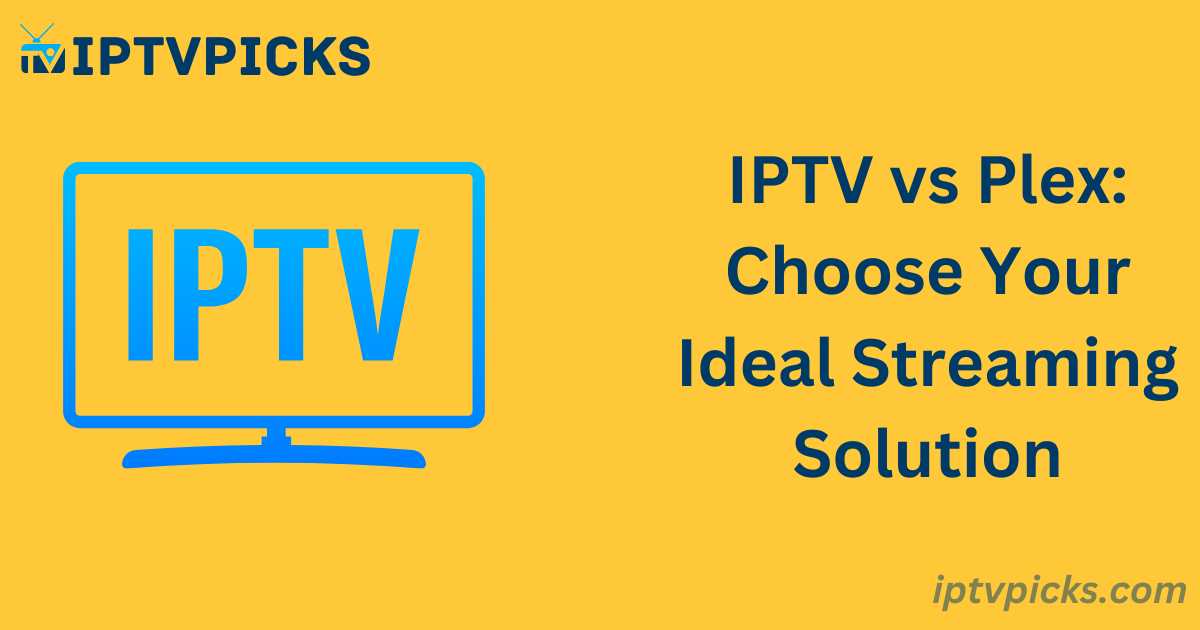In today’s rapidly evolving digital entertainment landscape, consumers are presented with a wide array of streaming options, offering unprecedented flexibility in how content is accessed. Two key players in this space are IPTV and Plex, each with distinct features and advantages. For users seeking the ideal streaming solution, understanding the differences between these platforms is crucial. In this guide, “IPTV vs. Plex: Choosing Your Ideal Streaming Solution,” we explore the unique characteristics of each platform and provide insight into their functionality, helping you navigate the world of IPTV subscriptions and the intricacies of Plex.
What is Plex?
Plex is a comprehensive digital media player and server that allows users to stream and manage personal media collections, including videos, music, and photos, across multiple devices. Its strength lies in its compatibility with a wide range of operating systems and devices, such as Windows, macOS, Linux, NAS devices, Android TV, PlayStation, Roku, Fire TV, and Xbox.
Plex’s intuitive user interface simplifies media organization, providing users with metadata like album covers, movie posters, and episode descriptions, creating a visually engaging browsing experience. The platform’s core feature is its ability to remotely access media libraries from anywhere with an internet connection, offering a seamless entertainment experience on any device.
Additionally, Plex’s sharing capabilities enable users to grant access to specific libraries or items, making it a versatile platform for sharing media with friends and family.
Plex: Advantages and Disadvantages
Advantages:
- Broad compatibility with various platforms.
- Enables remote access to personal media libraries from anywhere in the world.
- Supports live TV and DVR functionality.
- Offers numerous plugins and add-ons to enhance the user experience.
- Acts as a unified media center for personal media and IPTV services.
Disadvantages:
- A Plex Pass subscription is required for advanced features.
- The setup process can be more complex compared to IPTV.
- Some advanced features come with additional fees.
- Relies on third-party plugins and requires a dedicated server.
- Digital rights management (DRM) restrictions may apply.
What is IPTV?
IPTV, or Internet Protocol Television, allows users to stream live channels and international content through an internet connection on compatible devices. Unlike traditional satellite and cable TV, IPTV offers more flexibility, allowing multiple devices to access the service through a single subscription. This service is popular not only in homes but also in businesses, schools, and public spaces.
IPTV: Advantages and Disadvantages
Advantages:
- Greater flexibility and a wider range of international channels compared to traditional TV.
- Compatibility with a variety of popular devices, including third-party players.
- More cost-effective pricing options.
- Offers high-quality video and audio.
- Features such as video on demand (VOD), pausing live TV, PVR recording, and IPTV Catch Up.
Disadvantages:
- IPTV performance is reliant on a strong internet connection.
- Some hardware, such as smart TVs or dedicated receiver boxes, may be required.
- Issues such as buffering or delays may occur.
- Legality and copyright restrictions can be a concern.
- The quality of IPTV providers varies, making it important to choose carefully.
Setting Up IPTV on Plex
To integrate IPTV with Plex, users can utilize tools like xTeVe, an open-source M3U proxy that allows IPTV channels to be streamed through Plex. xTeVe acts as a bridge between IPTV services and Plex, enabling users to organize live TV channels and playlists within the Plex interface. Once set up, users can enjoy live television via IPTV through Plex’s media server, providing a unified streaming experience.
Conclusion
Both IPTV and Plex offer unique benefits for streaming enthusiasts, catering to different preferences and needs. Plex excels in media management, while IPTV provides a flexible and extensive selection of live channels. Whether you choose Plex for its powerful organizational capabilities or IPTV for its broad channel offerings, the decision depends on your personal viewing habits.
For users interested in a more stable live TV and sports experience, standalone IPTV services may be a better fit. XtrixTV, for instance, offers a dedicated IPTV app and a free 72-hour trial for new subscribers.
Frequently Asked Questions (FAQs)
















